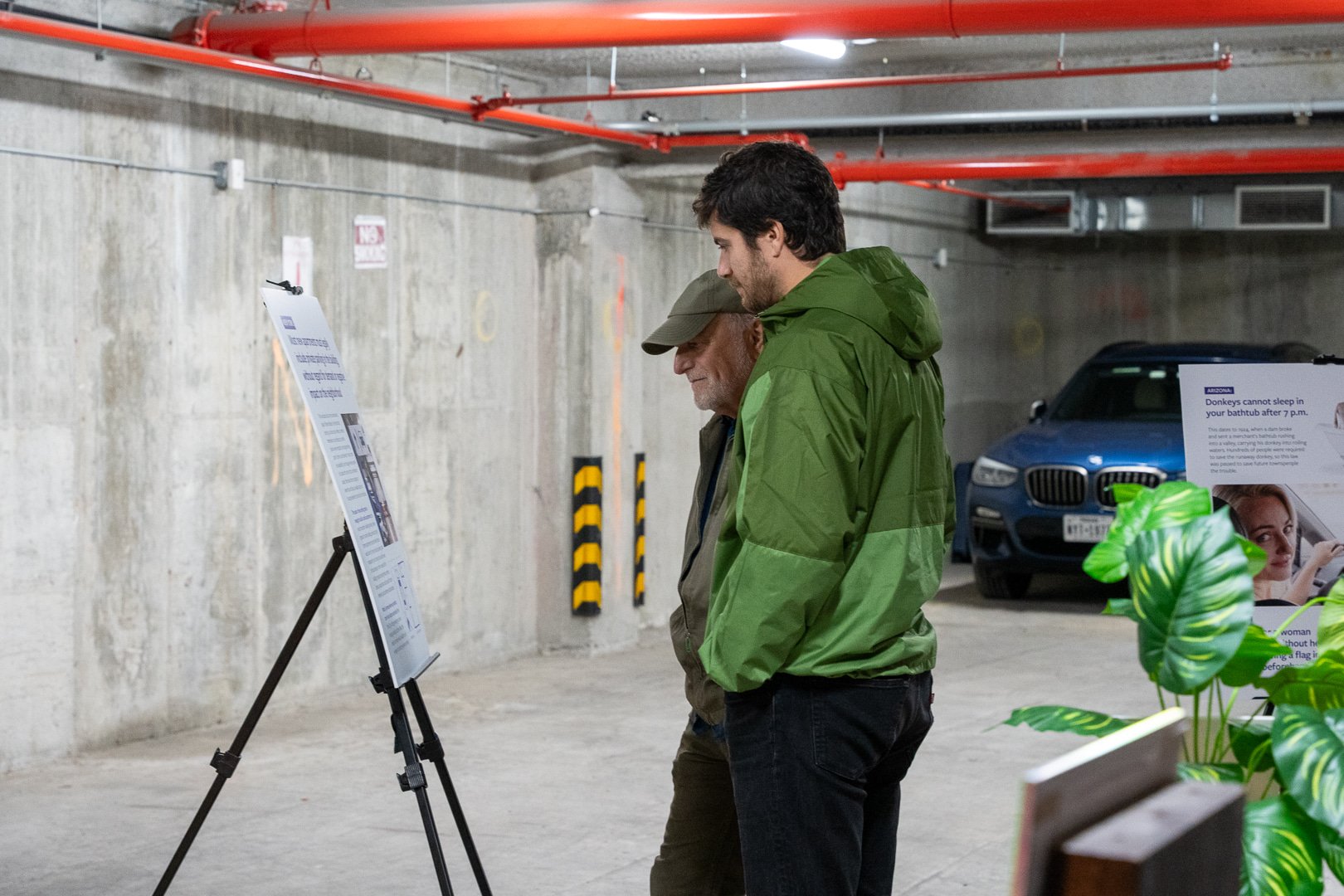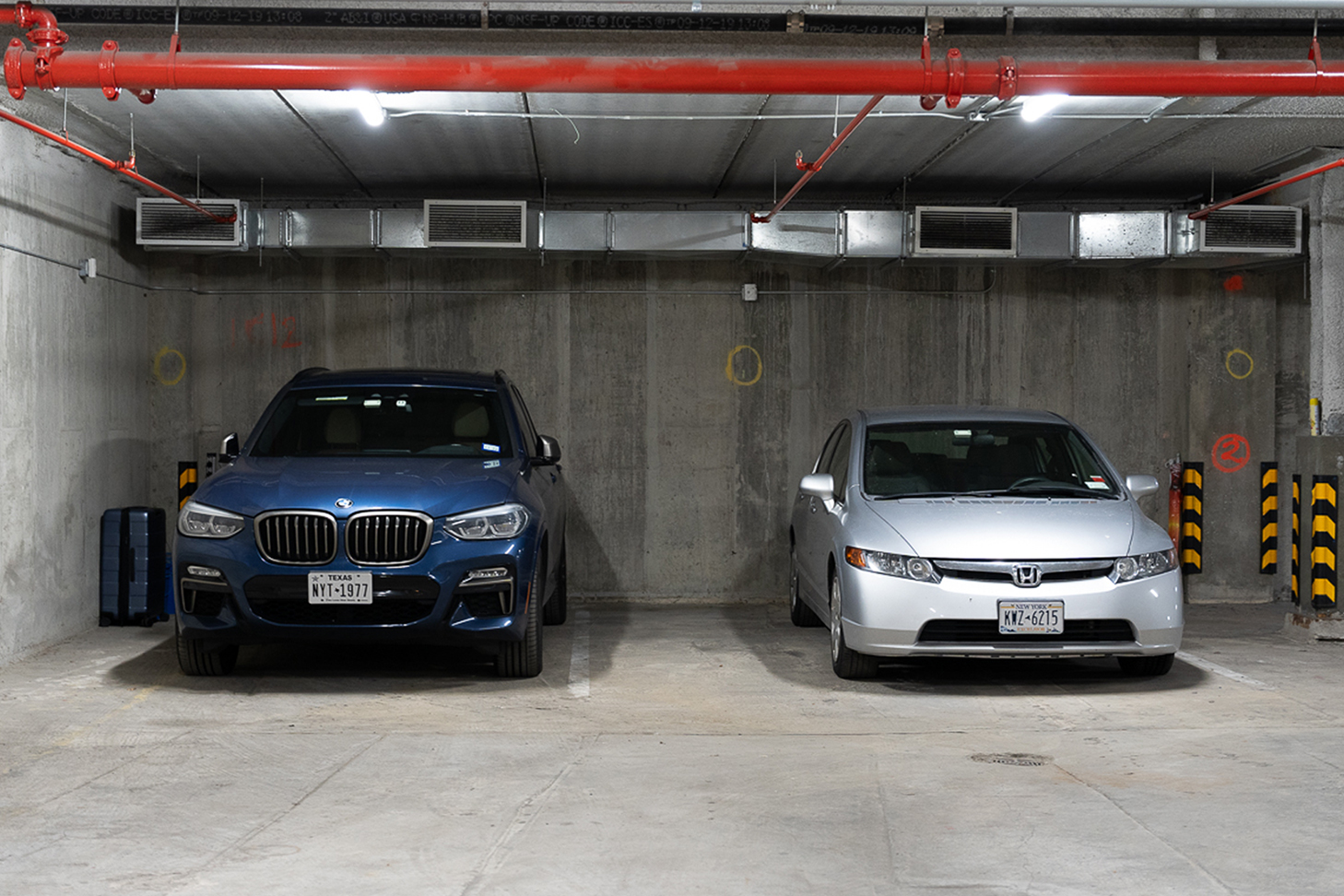People Over Parking: an installation
America’s legal system is full of seemingly nonsensical laws from bygone eras. Their premises have been debunked, or the context in which they were written simply doesn’t apply to the modern world. Most of these laws don't have much bearing on our lives these days, so they've simply been forgotten.
But New York City has one such law that still has a profound impact on city life. Parking mandates, the outdated zoning rule from when cars were king, require new buildings to create private parking spots regardless of need or desire. In the years since their enaction in the 1960s, we have come to understand that car-dominant policies are counterproductive and harmful - they encourage more isolated neighborhoods, pollute our air, impede new housing, and drive up rents. Yet parking mandates are still in effect. Across the five boroughs, they make housing production more expensive, make it harder to build affordable housing, and negatively shape our neighborhoods.
On Saturday, October 21st, Open Plans staged a studio apartment within two below-ground parking spaces to visualize the trade off that parking mandates force us to make. As visitors explored the apartment’s living space, dining area, and kitchen, they learned more about how parking mandates have helped create pollution, sprawl, and a dire housing crisis in New York City. The unique one-day-only experience, part of Open House New York Weekend, allowed guests to step into a future where the health and happiness of people come before the storage of cars.
What is harmed when we prioritize cars amidst overlapping crises in housing, livability, and the climate?





Parking Mandates Hinder Housing Development
Parking mandates are expensive. Just one below-ground parking spot can cost up to $150,000 to build. These enormous costs then get passed on to renters throughout the building, meaning that renters without a car (typically less wealthy and less white New Yorkers) are paying increased rents to pay off their neighbors’ parking spots.
In Affordable Housing developments, parking mandates are especially deadly. Total costs increase about 12.5% when one parking spot per unit of housing is required, an increase that thin financial margins cannot accommodate. By requiring developers to take on construction costs for car storage, New York City makes many affordable developments totally unfeasible. This is especially backwards because low-income New Yorkers who need affordable housing are less likely to own cars in the first place.
Parking Mandates Exacerbate the Climate Crisis
Experts warn we must reach net zero greenhouse gas emissions by 2050 to avoid climate catastrophe. Transportation accounts for 47% of emissions in New York State and is the second highest source of emissions in New York City. Yet our zoning rules are incentivizing car ownership and driving. Every policy right now should be focused on reducing car dependence and creating more opportunities for walking, mass transit, and micromobility.
Neighborhoods that rely heavily on cars hamper dense, walkable neighborhoods that create less pollution; undermine public transit and the safe use of micromobility; and create paved, nonporous landscapes that create flood-prone neighborhoods and hotter sidewalks in the summer.
Parking Mandates Create a Vicious Cycle of Car Dependence
Parking lots and garages take up ground-floor space that could be used for shops. These streetscapes feel less vibrant but practically, they’re much less walkable. When it’s not easy to walk to local shops or other errands, residents turn to cars — even for short trips. This car culture then leads to disinvestment in public transit or bike lanes, further discouraging people to walk or take sustainable transportation. And when so many people use cars, space becomes constrained, leading to the construction of still more parking. But that only encourages more driving, leading to more space constraints. And around the cycle goes.
A Better Future
Today, New York City has a real chance to modernize our zoning code and eliminate outdated parking mandates. In the City of Yes Zoning for Housing Opportunity text amendment, the Department of City Planning has proposed fully lifting parking mandates across New York City. This would give buildings the option to include parking, rather than require it, for the first time since the mid-20th century.
This is a historic moment for New York, but we’re behind other American locales, including Buffalo, San Diego, and Portland, Maine, who have already eliminated their parking mandates. These places are far more dependent on cars than the average New York neighborhood, yet they recognized that burdening buildings with parking requirements only hampers the kind of dense development that creates vibrant, thriving communities. This is New York City’s chance to strike these harmful rules from our zoning code for good, and bring our housing policy into the 21st century.






